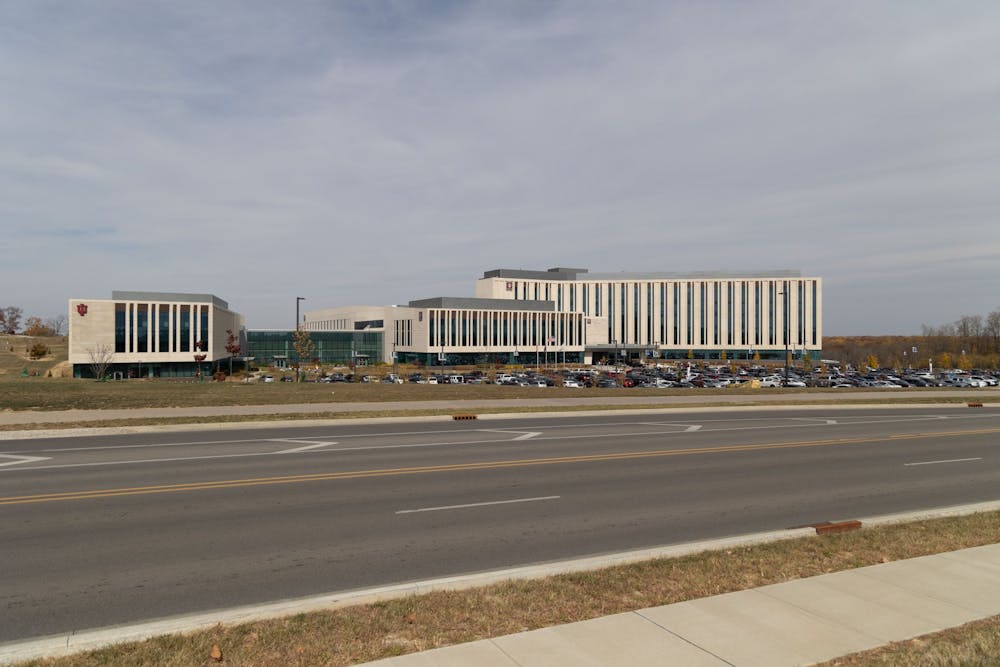University researchers in Indiana were given a $5.1 million grant by the National Institute of Drug Abuse to work on reducing the high number of opioid overdose deaths in the state. These researchers will work with over 18 overdose prevention facilities.
Matthew Aalsma, a trained juvenile psychologist and co-leader on the project, said he works with Overdose Fatality Review teams to review overdose deaths in the state.
“What these teams do is understand the unique circumstances that lead an overdose victim to their death,” Aalsma said. “Teams dive into the individual's life to find out what lead to the death.”
Using data, teams find linkages between the person's life history and treatment information in order to have local providers identify gaps to provide better care in the future.
Related: [IU School of Medicine receives $48.8 million grant toward Alzheimer's research]
“Because there are so many overdose deaths here in Indiana, we look at secular trends over time to see what specific counties have the highest overdose rates,” Aalsma said. “Once we have that data, we can make sure that in those counties they have the best possible resources.”
The program applied for a grant through the National Institute of Drug Abuse Initiative HEAL, which stands for Helping to End Addiction Long-term.
“Because of the opioid crisis we are in, we were approved for the funding,” Aalsma said. “I am excited for Indiana to receive dollars in this area because we have a significant need. We have great state partners who will help guide all the work around drug treatment which also helps us bring funding to Indiana.”
Aalsma said his goal for the project is to be a national model to other states in hopes for them to replicate this movement.
“I want this project to result in improved programs for local harm reduction and treatment to prevent overdose,” Aalsma said. “I hope by providing information local partners are powered to provide interventions that lead to less overdoses.”
According to WFYI Indianapolis, Indiana overdose numbers reached a record high for the second consecutive year. An estimated 2,755 Hoosiers died of drug overdoses, with most cases being due to Fentanyl.
Fentanyl, a synthetic opioid, has worsened the nation's overdose crisis. The drug is used to treat pain, but it is now being mixed in with other drugs which can have fatal results.
The number of overdose deaths represents a 21% increase from 2021, which set a record at 2,272. Before the COVID-19 pandemic, the record was 1,835 deaths, set in 2017.
Related: [Local resources for those dealing with opioid addiction, overdose]
Brad Ray, a senior justice and behavioral health researcher at Research Triangle Institute and co-leader on the overdose death research project, said these numbers are the most overdose deaths the country has seen in a record time.
“Overdose deaths have never been higher in the United States of America,” Ray said. “They are still increasing compared to what they were last year. They are particularly bad in Indiana and very bad in Indianapolis.”
Khairi Reda, an associate professor in the IU School of Informatics and Computing at IUPUI and a leader on the project, said with the increase in overdose deaths they are hopeful analyzing the data will reduce the number of overdose deaths.
“There has been an increase in overdoses, which unfortunately is going on all across the nation,” Reda said. “Rates have been increasing, which was exacerbated by economic and social problems and unemployment opportunities, causing a lot of pressure to some people. This is a nationwide problem and especially acute in Indiana.”
Working with the review teams and using data visualization designs, Reda said they will try to understand how to better prevent overdoses in the future, especially those in Indiana.
“We hope that we are able to lower the overdose death rates in Indiana and these interventions are used in counties and areas across Indiana,” Reda said.






